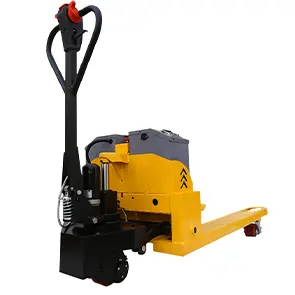


Manual Pallet Lifters Essential Tools for Warehouse Efficiency
In the dynamic world of logistics and warehousing, efficiency is key. Among the myriad of tools available for material handling, manual pallet lifters—or manual pallet jacks—stand out as indispensable equipment. These practical devices are designed to streamline the movement of goods, ensuring that businesses can operate smoothly and effectively.
What is a Manual Pallet Lifter?
A manual pallet lifter is a mechanical device designed for lifting and moving pallets or heavy loads. It comprises a set of forks attached to a hydraulic lifting mechanism. Users can insert the forks beneath a pallet, engage the hydraulic system using a handle, and easily elevate the load to a convenient height for transport. This ergonomic design helps workers lift items with minimal physical exertion, reducing the risk of injury and enhancing productivity.
Benefits of Using Manual Pallet Lifters
One of the primary advantages of manual pallet lifters is their versatility. They can be used in various settings, including warehouses, retail shops, and manufacturing facilities. Their compact size allows them to navigate through narrow aisles and tight spaces, making them ideal for crowded environments. Additionally, manual pallet jacks can be employed on various surfaces, from concrete to asphalt, making them suitable for indoor and outdoor use.
Another significant benefit is cost-effectiveness. Compared to electric or motorized pallet movers, manual pallet lifters are relatively inexpensive and require little maintenance. This cost advantage makes them an ideal choice for small businesses or those with budget constraints. Additionally, since they do not rely on power sources, they can be used anywhere without worrying about battery life or electric outlets.

Ease of Use
Manual pallet lifters are designed with user-friendliness in mind. The operation typically involves three simple steps inserting the forks, lifting the handle to raise the pallet, and pushing the handle to transport the load. Most models come equipped with ergonomic handles and durable, puncture-resistant wheels, ensuring smooth mobility across various surfaces. Training staff to use manual pallet jacks comfortably can enhance overall workflow, as they are intuitive and require minimal instruction.
Safety Considerations
While manual pallet jacks are generally safe when used correctly, it is essential to follow certain safety guidelines to prevent accidents. Operators should always inspect the pallet lifter before use to ensure it is in good working condition. They should be trained in proper lifting techniques to avoid exceeding the maximum load capacity and to maintain stability. Additionally, ensuring that the area is free of obstacles can help prevent accidents while transporting loads.
Conclusion
In conclusion, manual pallet lifters are essential tools in the warehousing and logistics sectors, significantly enhancing operational efficiency and worker safety. Their versatility, cost-effectiveness, and ease of use make them a valuable investment for businesses of all sizes. By adopting these practical devices, companies can optimize their material handling processes, minimize downtime, and create a safer working environment. As logistics and warehousing continue to evolve, the role of manual pallet lifters remains crucial, ensuring that workers can efficiently manage the movement of goods with ease and confidence. Whether dealing with pallets in a bustling warehouse or transporting goods within a retail space, the manual pallet lifter is an ally that every operation can benefit from.



